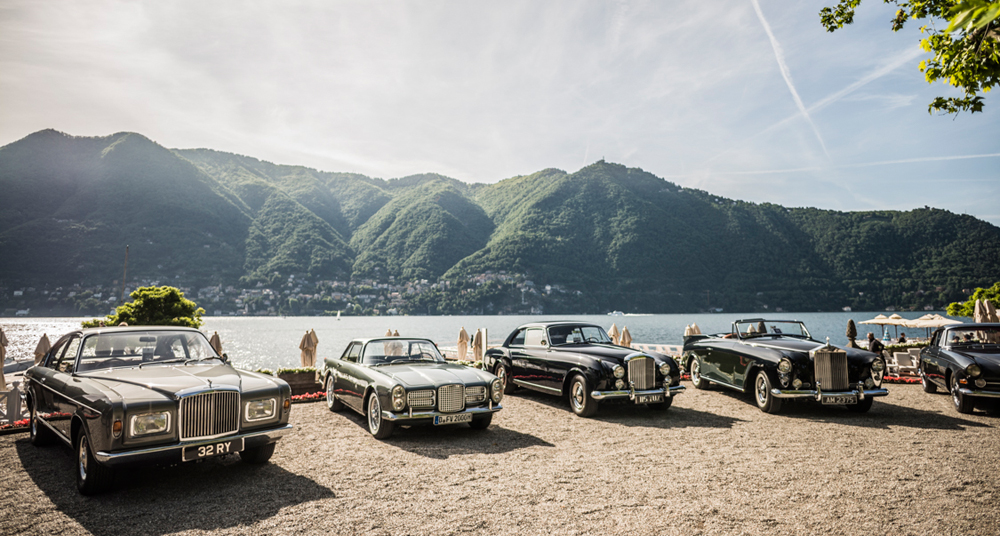
With new classes formed and some less-than-traditional cars making up the entry list, the organisers of this year’s Concorso d’Eleganza Villa d’Este placed heavy emphasis on modernising the history-steeped event. But how successful was the rejuvenation?

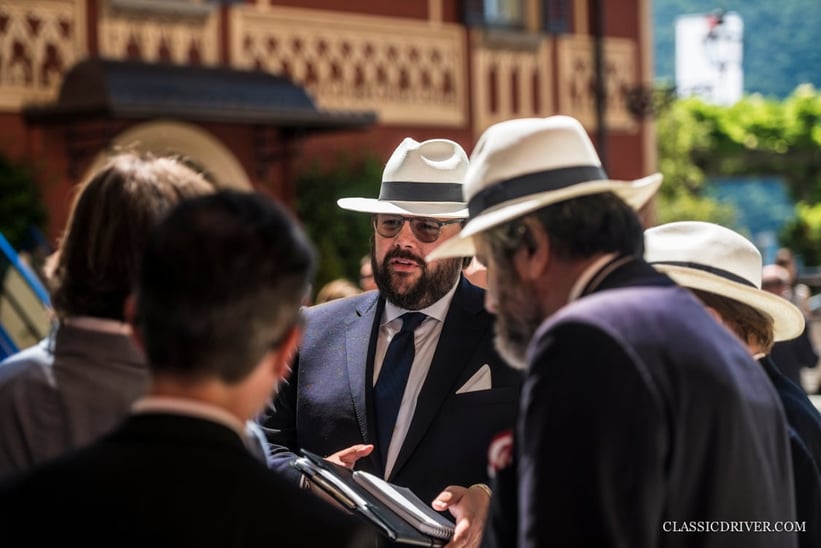

Christmas Day, New Year’s Eve, Concorso d’Eleganza Villa d’Este – for us, the great automotive garden party held on the Lake Como shoreline is undoubtedly one of the highlights of the year. If the sun is glistening on the water, and the brilliant white uniforms of the waiters can be seen in the distance as you approach by water taxi, then the stage is set for another memorable event. Villa d’Este is a magical place – and the Saturday of the Concorso is automotive paradise. Some of the most beautiful and elegant cars ever produced come together on the immaculate lawns to be scrutinised by the public and a panel of knowledgeable jurors. This year, a total of 51 extraordinary classics were entered into the Concorso, including both established favourites and unfamiliar oddities.
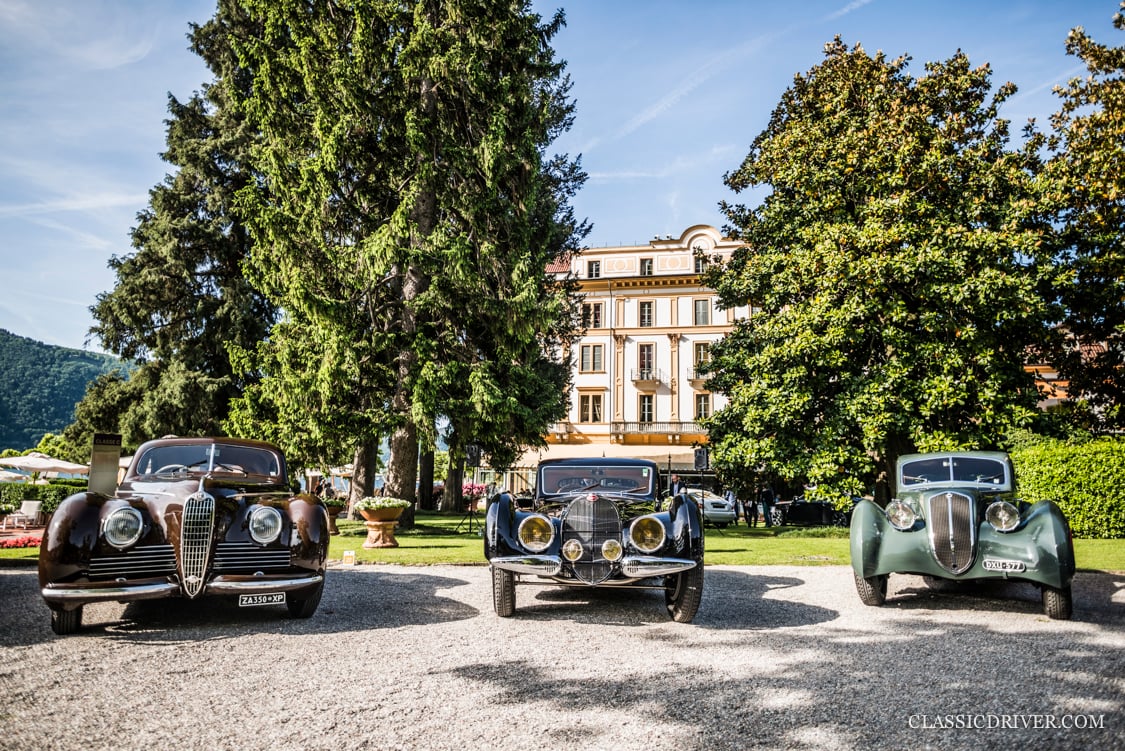
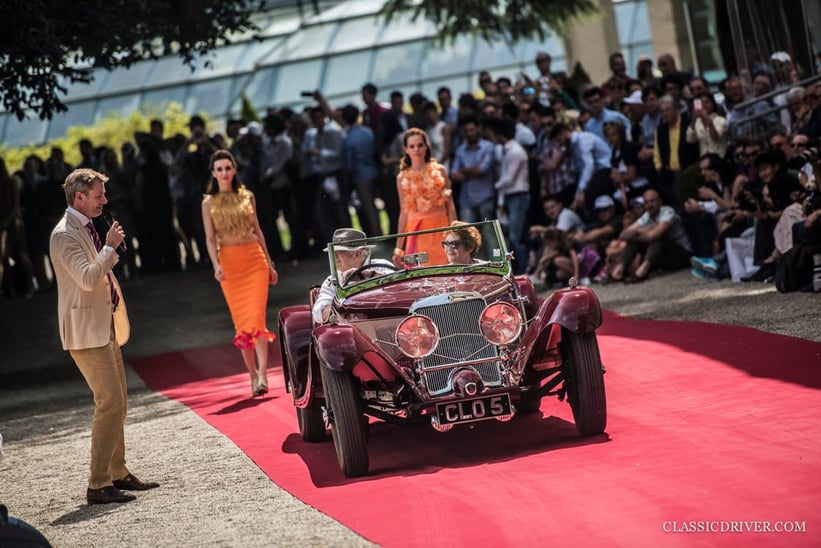
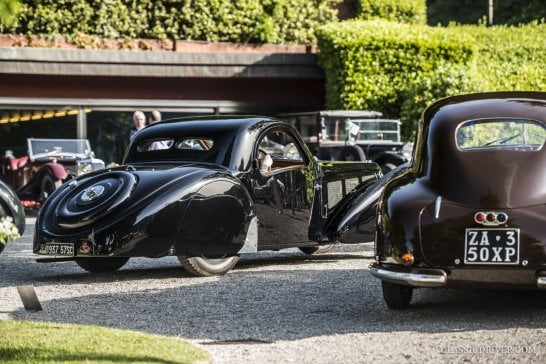
Around the large Plane tree, which has unfortunately lost its crown since last year, a number of pre-War classics were gathered as always. A Hooper-bodied Bentley 4 ¼ Litre Drophead Coupé sunbathed resplendently in its baby blue hue, while an open tourer represented the near-forgotten Squire marque – which did battle with Alfa Romeo and Bugatti in period – as one of the six remaining vehicles in existence. Meanwhile, the Bertelli coachwork of the 1932 Aston Martin International looked positively hot-roddish, and a Bugatti 57 SC Atalante, one of only 14 produced, arrived from Greece – rather appropriate, considering the car’s namesake.
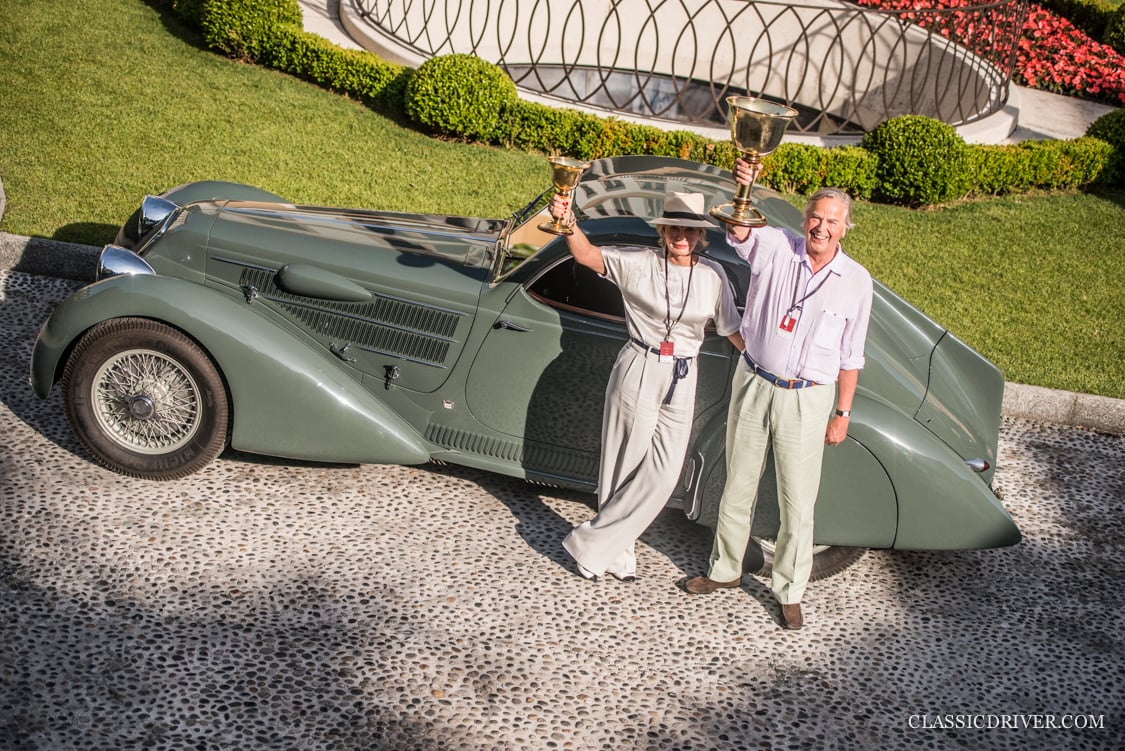
This year, our favourite from the pre-War classes was the 1933 Lancia Astura Series II of Dutch collector Anthony Meijer. Fascinatingly, the Castagna coachwork had originally been fitted to an Alfa Romeo 8C, but was merged to the Lancia chassis and eight-cylinder engine at the behest of Benito Mussolini’s son, Vittorio. In its revised form, the car was launched in 1935 at the 24 Hours of Pescara, and appeared on the Villa d’Este concours lawn a few weeks later. Its Coppa d’Oro win this year speaks for the fine spirit of the Concorso visitors – and we had fully expected the Lancia to clinch the Jury’s vote, too.
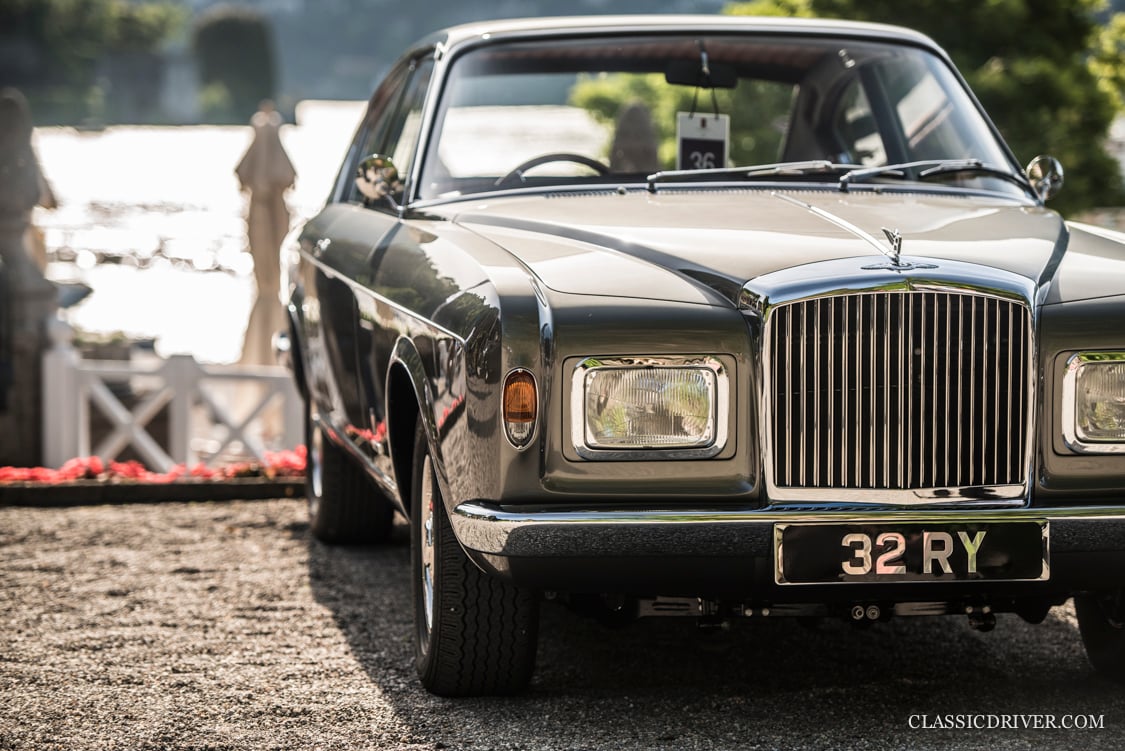
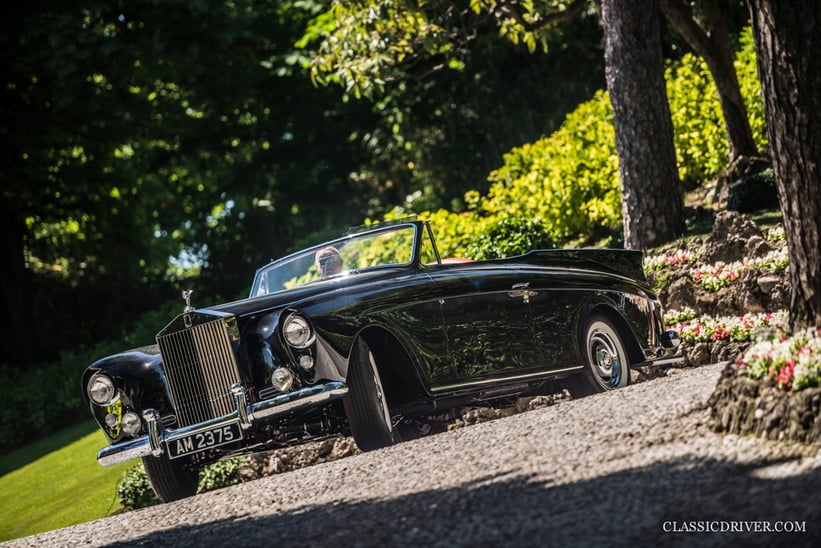
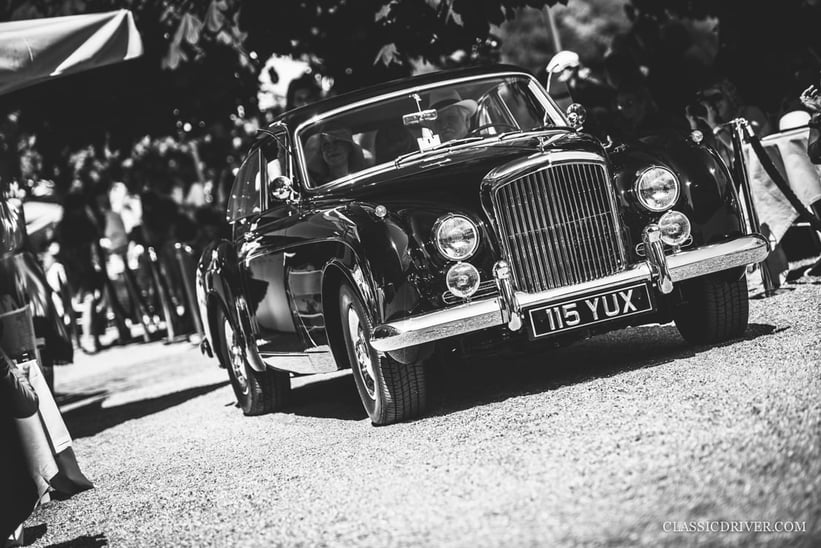
Elegant and unusual bodies weren’t only the preserve of pre-War years, however. The Rolls-Royce Silver Cloud I ‘Honeymoon Express’, with jet-age styling and tailfins courtesy of Freestone & Webb, exuded sporting elegance. We were also charmed by the ex-Aristotle Onassis Bentley S2 Continental – the only specimen with a fastback body – but it would be the Facel Vega Facel II that we would select for the drive home. Meanwhile, Sir Anthony Bamford’s Bentley T Speciale was a sight to behold, if not as elegant as other Pininfarina designs of the era what with its curious amalgamation of Fiat, Ferrari and Bentley styling cues.
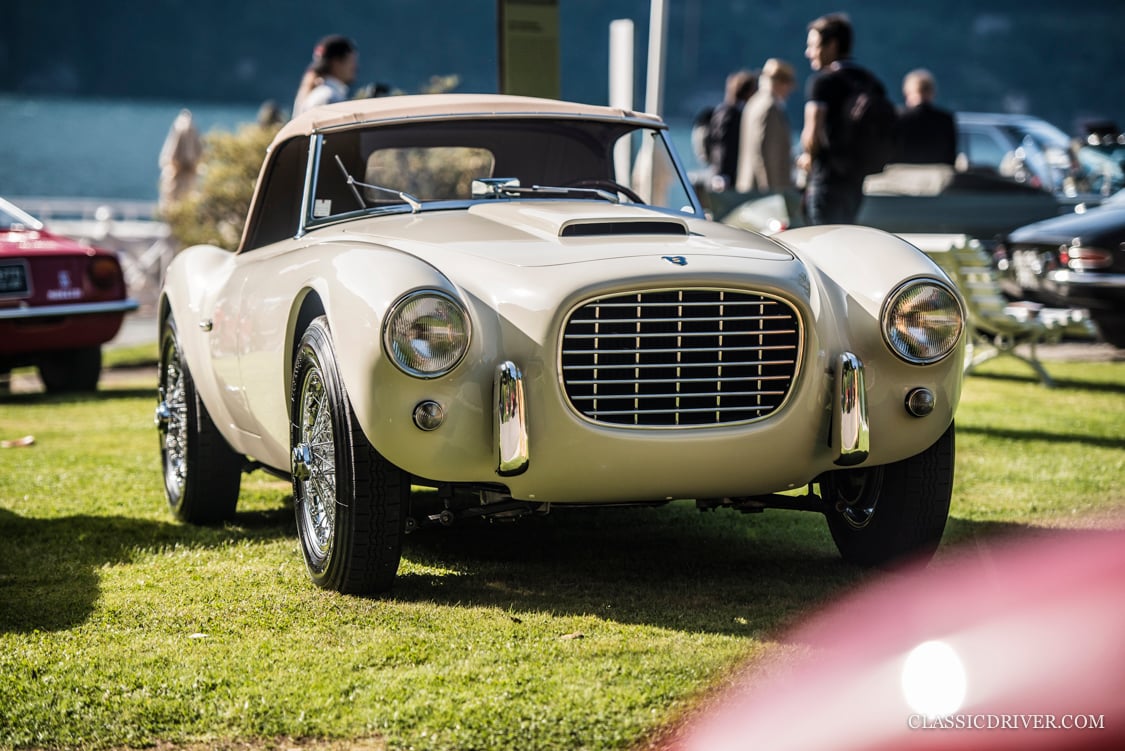
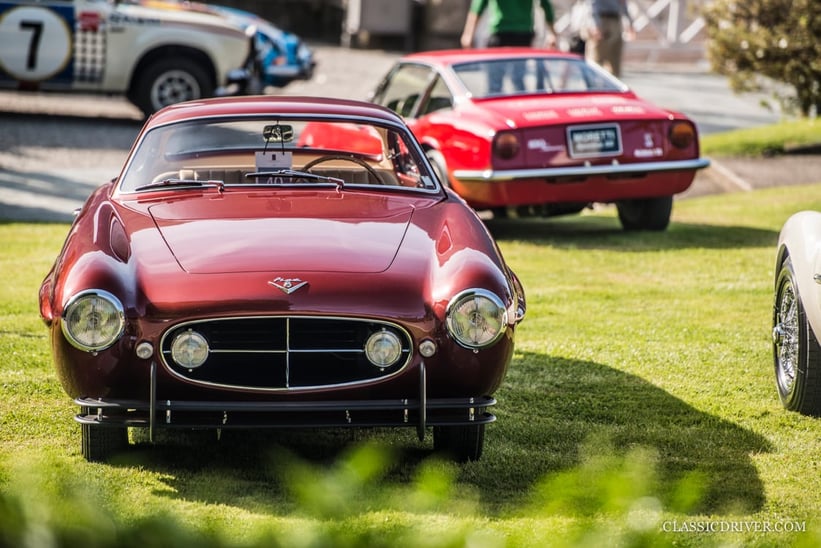
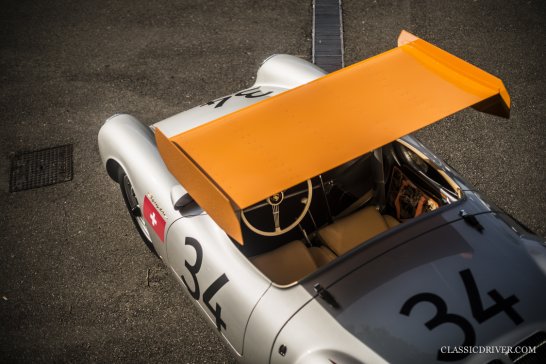
In the face of increasing obesity in modern-day sports and luxury cars, it was refreshing to be reminded about the compact dimensions of their ancestors. Good inspiration for budding designers came in the form of a Siata 208 S, a Fiat 8V Supersonic and a Fiat Moretti 850 Sportiva SS – also colloquially referred to as the ‘baby Dino’. That the ‘Best in Show’ winner, a Maserati A6 GCS, also heralded from the ‘Petite Performance’ category suggests our sentiments are shared. Other diminutive delights included the bespoilered Porsche 550 RS that wowed visitors at the 2015 Pebble Beach Concours, and the deafeningly loud Abarth Simca 1300 GT Corsa complete with a 1.3-litre four-cylinder engine, capable of speeds in excess of 150mph.
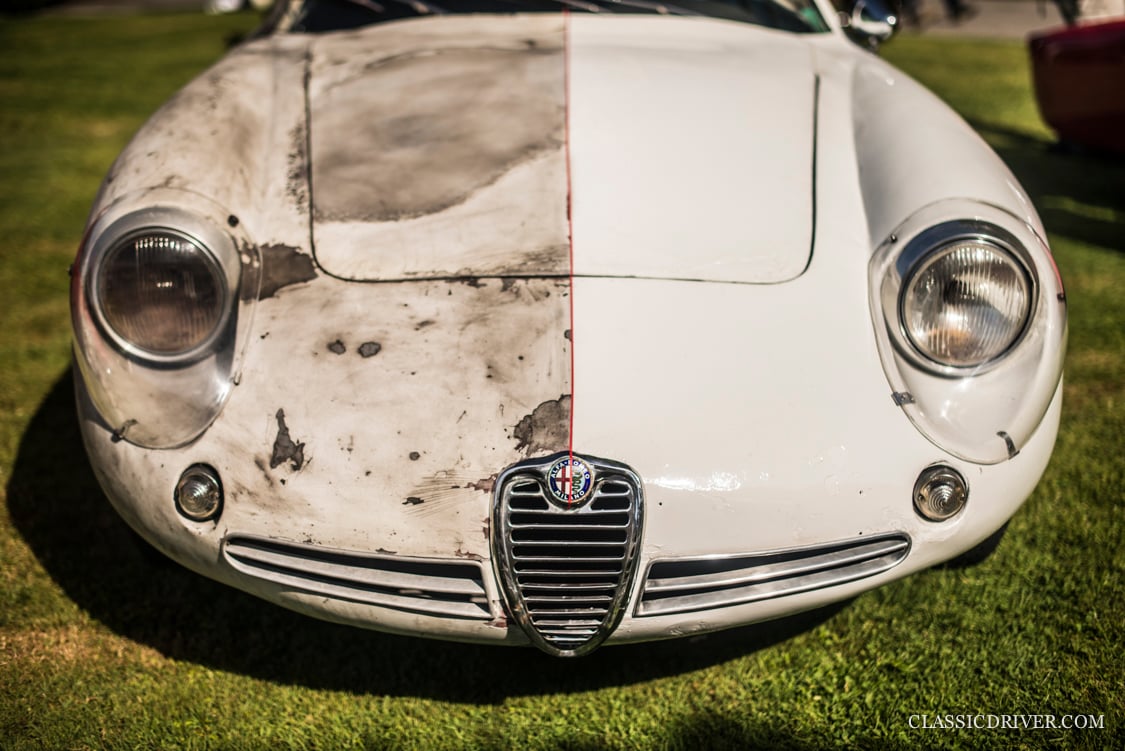

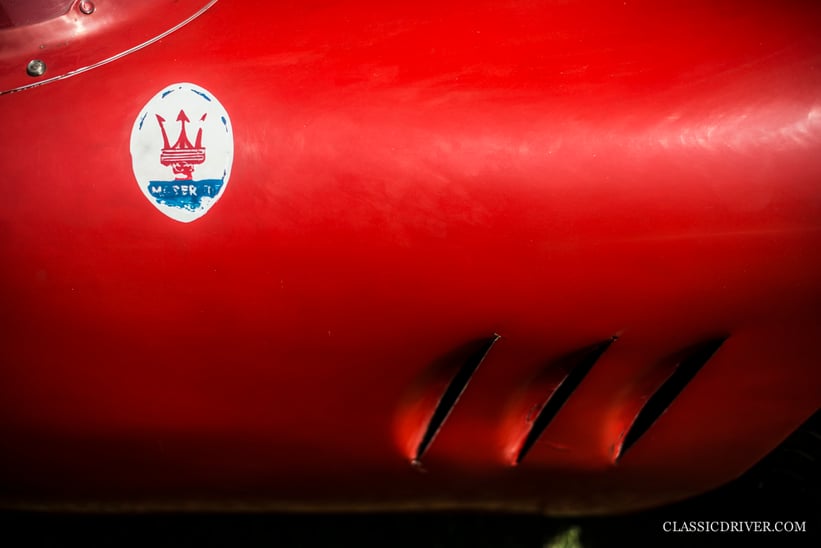
Another small yet noticable Italian was Corrado Lopresto’s Alfa Romeo Giulietta SZ – not only for its credentials as the prototype for Ercole Spada’s Coda Tronca body, but also for its unusual presentation. Displayed in ‘barn-find condition’ at last year’s Wilton House festival, half of its body has since been restored, with the other side left as-is. Meanwhile, Egon Zweimüller demonstrated his penchant for patina again – his 1957 Maserati 200 Si wore its faded red paintwork and the remnants of a hand-painted Trident with pride.
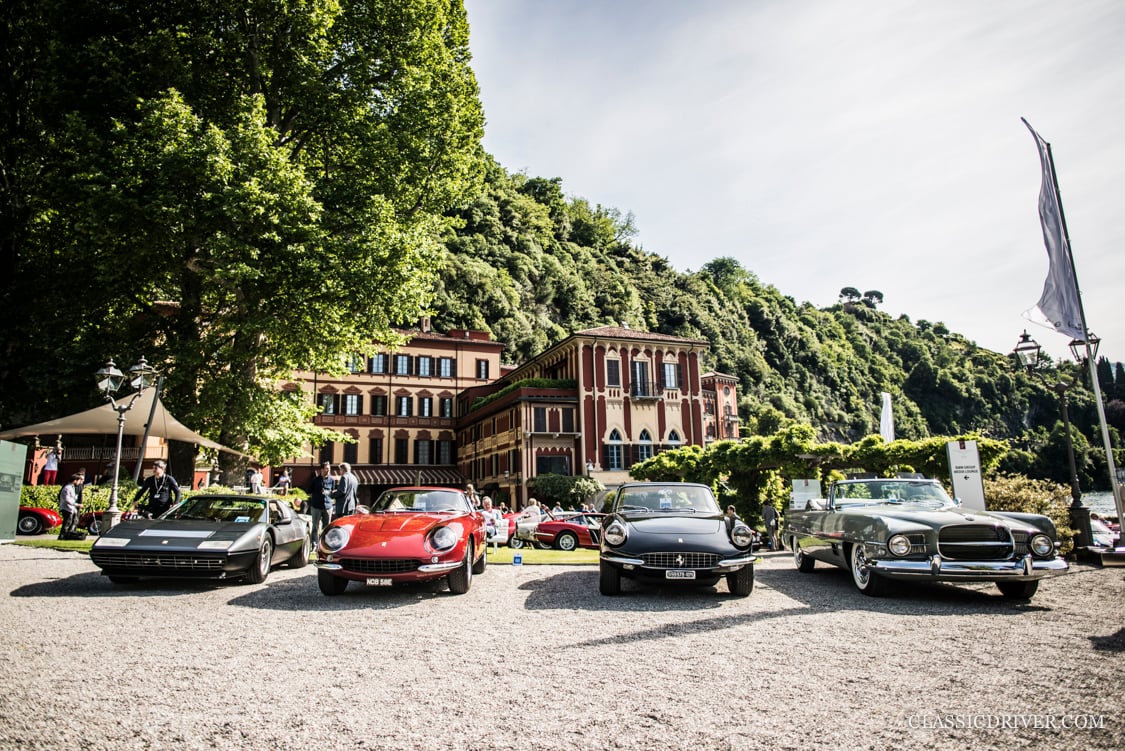
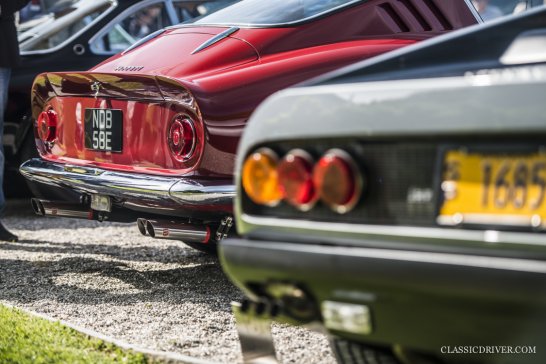
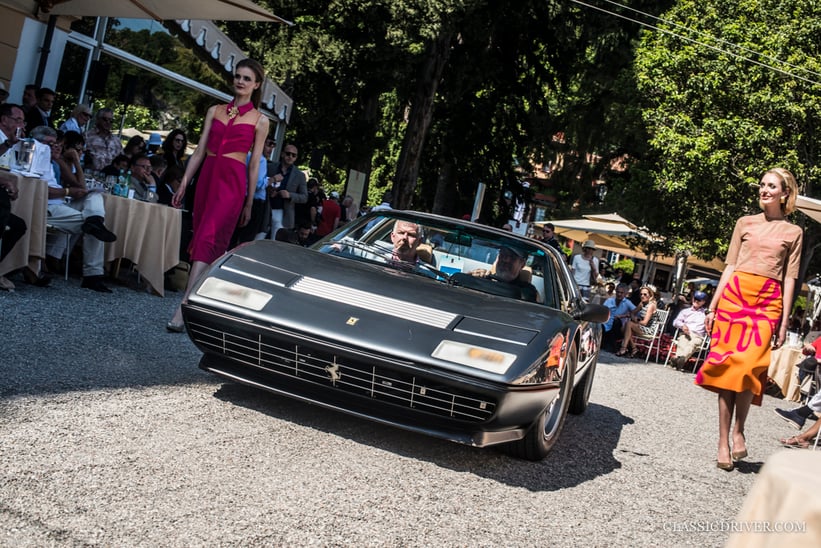
Given the premiums paid in recent years for classic cars with famous former owners, it was only a matter of time before the Concorso dedicated a class solely to the VIP machines of yore. Clark Gable and an attractive co-pilot were famously photographed in his Jaguar XK120 outside the Grand Hotel Villa d’Este in 1952, and this year saw the roadster make a return in fine fashion. Elsewhere, there were several prancing horses previously ridden by the stars: Marcello Mastroianni’s 330 GTC, Steve McQueen’s 275 GTB/4 and Clint Eastwood’s 365 GTB/4 BB Targa all bore witness to an era when silver screen icons still had a taste for stylish transportation, rather than opting to be chauffeured through Beverly Hills in big brash SUVs.

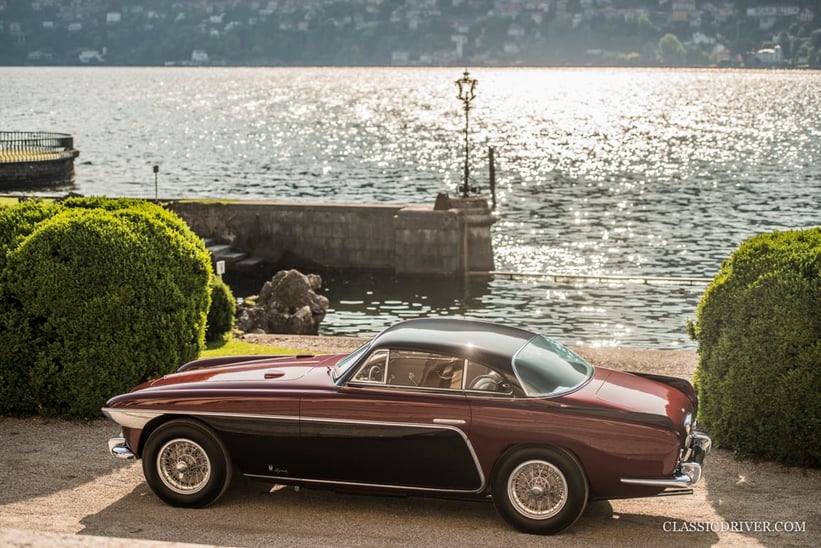

As is always the way at Villa d’Este, the dream cars of the Classic Driver editors could be found in the Grand Touring class. Take David Sydorick’s Aston Martin DB4 GT Zagato, Kevin Cogan’s Ferrari 250 Europa or Paolo Caldini’s Lancia Aurelia B52, for example, all of which had us dreaming of long Tuscan country roads. We were pleasantly surprised to find a Bizzarrini 1900 GT Europa mingling with GT royalty in the category. The compact sports car, fitted with an Opel engine, was intended to become the entry-level Bizza. Alas, owing to financial woes, only 11 examples were ever built.
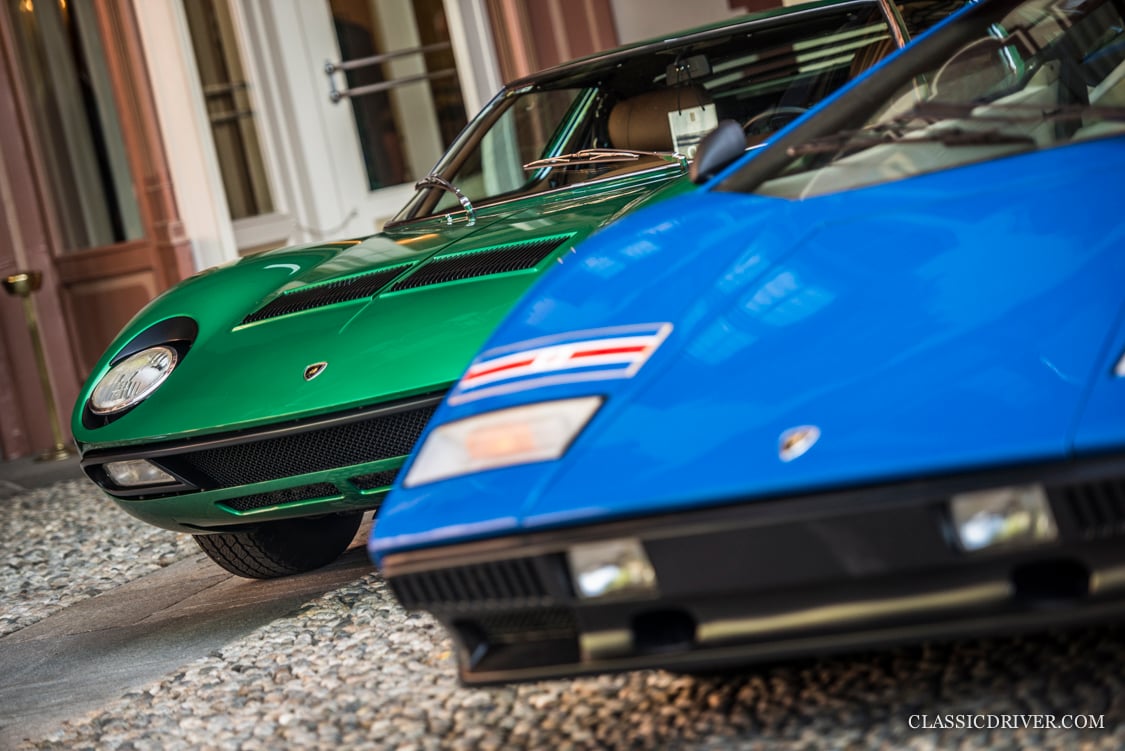
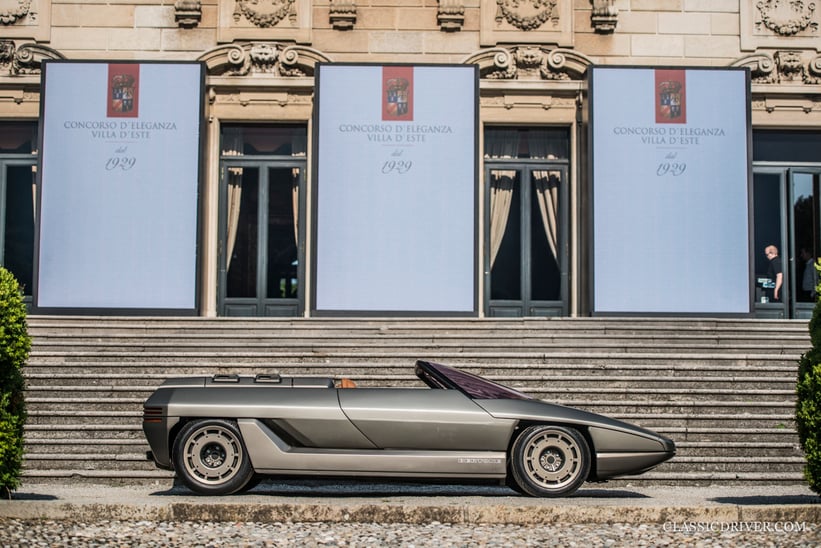
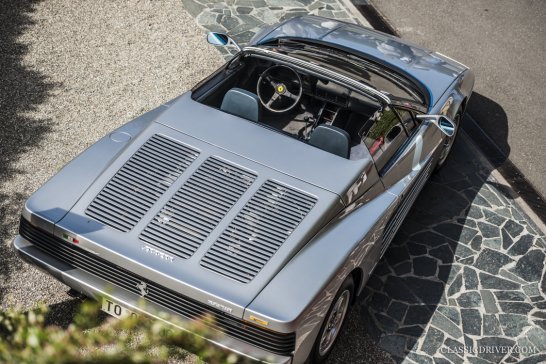
Another new class for 2016 was ‘Driven by excess – from Glam Rock to New Wave’, for excessive designs from the 1970s and 1980s. In addition to the timeless Lamborghini Miura SV, fresh from restoration at the company’s new in-house ‘Polo Storico’ heritage department, there was a plethora of opinion-polarising designs. Formula 1 magnate Walter Wolf’s Lamborghini Countach LP400 and the ex-Gianni Agnelli Ferrari Testarossa Spider were a good case in point. Visitors’ opinions were perhaps most split with the Lamborghini Athon from the collection of Albert Spiess. The design study was penned by Marc Deschamps for Bertone in the early 1980s, and was one of the most innovative geometric automotive designs of the era. A neon headband is a must, should you be interested in taking the wheel.

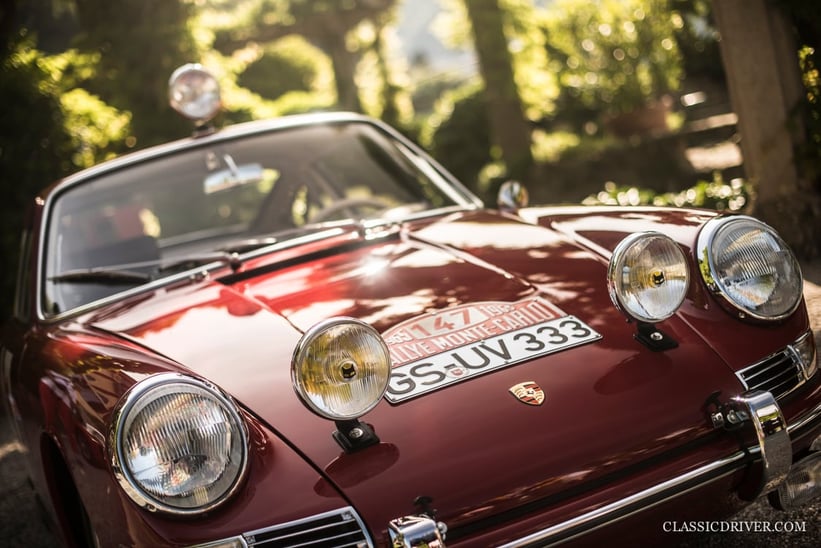
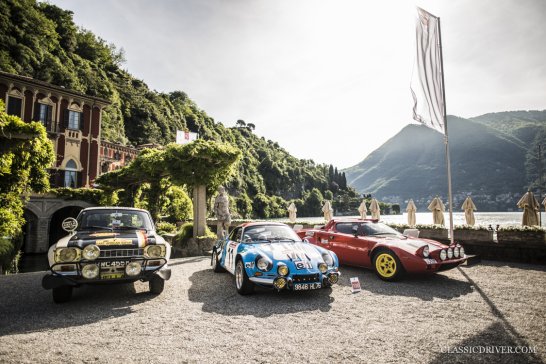
Rally heroes from the 1960s and 1970s made their debut at Villa d’Este this year, which proved a strange sight despite their historical relevance and desirability among collectors. Nevertheless, the selection of cars on display was fabulous, from a 1964 ‘Big Healey’ with an impressive competition history to a Monte-Carlo Rally class-winning Porsche 911. Competition for the class win was fierce and, though the ex-Works Alpine A110 came close, the 1972 East African Safari Rally-winning Ford Escort RS 1600 took the spoils.
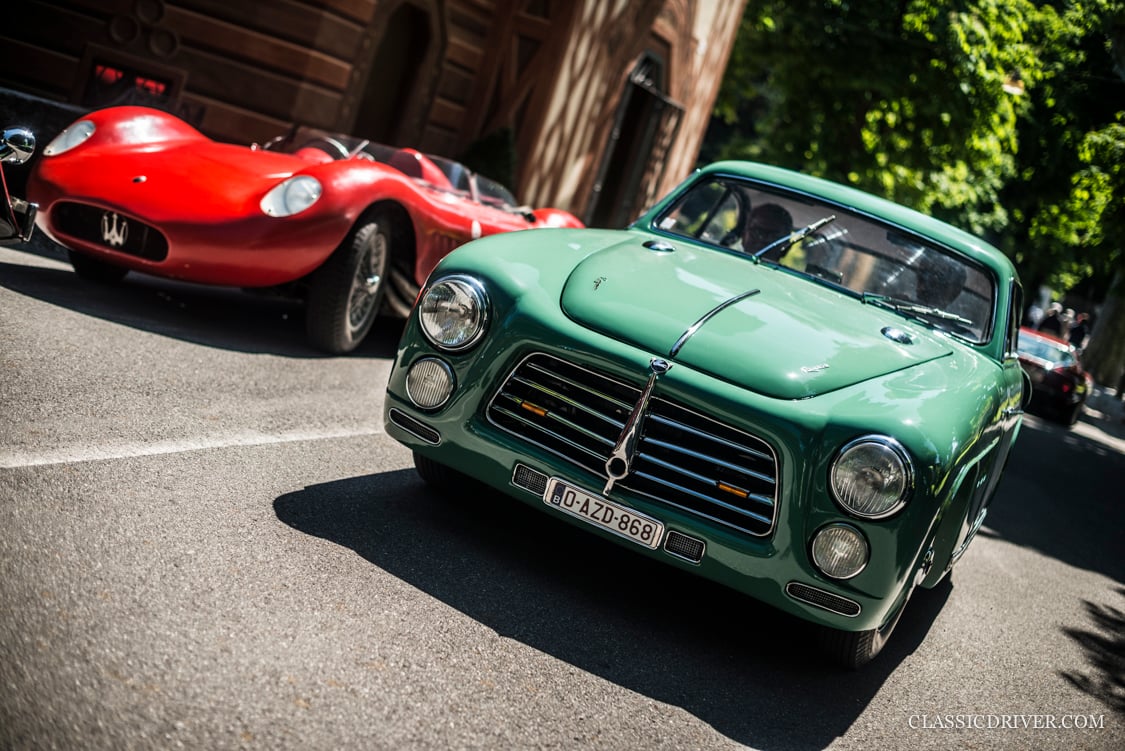
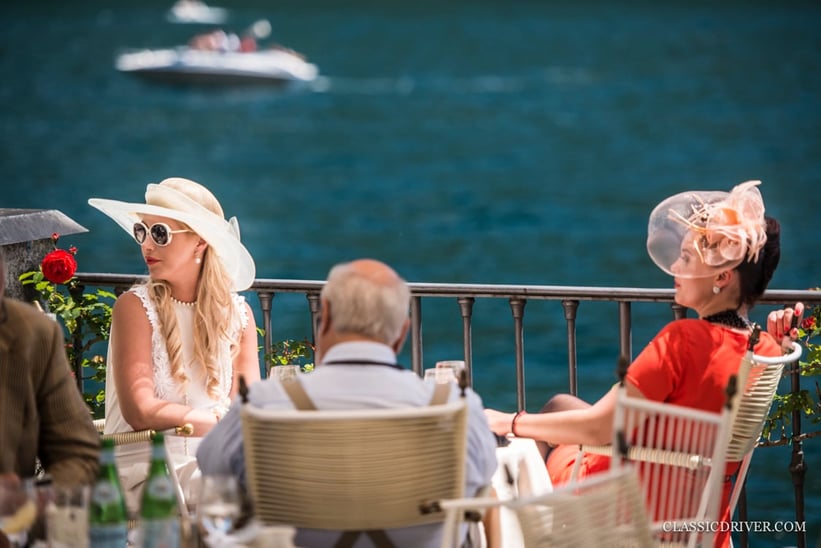

Though the selection committee ventured into exciting new territory with the inclusion of rally machines for the first time, we missed those ‘big game classics’ – flamboyant and exotic cars from both the pre- and post-War years – and the collectors and visitors we spoke to throughout the weekend generally agreed with us. In comparison, Pebble Beach has not lost its focus at all, and the quality of cars exhibited there is telling. The organisers of Villa d’Este should go in search of new collectors, and compete for the very finest classics once again. After all, what better stage is there for a beautiful car than the Grand Hotel Villa d’Este on the shores of Lake Como?
Photos: Rémi Dargegen for Classic Driver @ 2016
On 21 and 22 May 2016, the glitterati of the international classic car scene convenes on the shores of Lake Como once again for the Villa d’Este Concorso d’Eleganza. Classic Driver will be reporting live from the event in partnership with A. Lange & Söhne, the official watch partner of the world-class automotive beauty pageant.

Aucun commentaire:
Enregistrer un commentaire